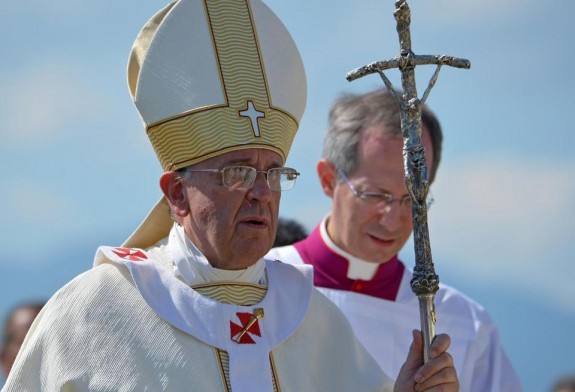It’s a refrain I’ve heard again and again from people everywhere. I hear it from Catholics, from Presbyterians, from Jews, from non-believers—even from people who profess no belief in God at all.
When they find out what I do, and learn about my role in the Church, the first they thing tell me is: “I’ve got to tell you, I love this pope.” That don’t ask what I think of him, or comment about anything else of note in the Christian world. They simply need to be on the record with one simple declarative sentence:
“I love this pope.”
This is something new and unheard of in my experience, and it speaks to something John Allen writes about in this week’s column in The Boston Globe. He reflects on the torrent of tweets and speculation that surrounded news that the pope had a cold and needed some down time. Francis canceled a number of important appearances for the summer, a move which raised eyebrows and caused a flurry of news reports.
Why the kerfuffle last week over the pope’s health? To be honest, it may say less about the physical condition of Francis than the psychological condition of the rest of the world.
In 15 months, Francis has become something akin to the Catholic Church’s indispensable man.
For many Catholics, their hopes for a more compassionate and open church are invested in Francis. For many non-Catholics, Francis has become like a new Nelson Mandela, a source of moral authority and an icon of personal integrity.
One can argue whether those perceptions are accurate or deserved, but poll numbers and magazine covers alike say they’re real.
As a result, people are likely to overreact to any perceived sign of weakness out of fear that this “Roman spring” may be short-lived.
In other words, if this is how people react when the pope just needs a little down time, God help us when he’s really sick.












